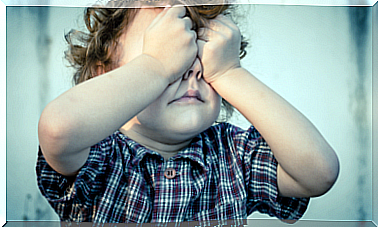Is It Possible To Dream About The Future?

A big world opens up in front of you when you sleep. For example, you can talk to those who have passed away, visit other places or even dream about the future. Some often talk about the latter. Furthermore, they are convinced that what they dreamed of will eventually happen.
Memories and knowledge are connected in your dreams. When it comes to predicting the future, this tends to be related to your brain and imagination. But when you create fictional content, in or out of dreams, you trust your life experience.
Does this mean that your future dreams are likely to come true? Well, as is often the case, there is a bridge between myths and reality. In this case, the bridge takes the form of scientific studies. These explain the phenomenon of dreams about the future that was previously thought to be caused by magic.

What happens in the brain when you dream?
Deep sleep oscillates between two phases. These are REM and NREM. There are important differences between them:
- REM phase or rapid eye movement. Paradoxically, the activity in this phase is very similar to that when you are awake. However, the brainstem blocks your muscle movements. This means that the actions you dream of are not reproduced. REM is characterized by rapid brain waves.
- Non-REM or NREM phase. In this phase you sleep deeper. You have low brain frequencies – less than 4 Hz. At this stage, your brain responds minimally to external sounds. In addition, you are less likely to wake up.
In the REM phase, you tend to experience the strangest, longest and most memorable dreams. But in both phases, you are more likely to dream when your brain waves are weak.
Dream and memory, dreams of the future
A recently published study revealed some interesting facts about the relationship between sleep and memory. Most importantly, NREM sleep is involved in the consolidation of episodic memory. On the other hand, REM sleep establishes and regulates emotional information. It also favors creativity and perception.
Furthermore, the time of night when you dream is also relevant. In fact, the study found that early morning dreams tend to be related to everyday life. But at night, they are more relevant to your emotions.
When you are awake, you process your memories to prevent possible dangers and threats to yourself. This combination of memories and imagination fulfills a basic adaptive function: to predict the future. Since there is an implicit mechanism in the mind, is it possible that dreaming about the future is also possible? Read on to find out.
The evolutionary value of predicting the future
In evolutionary terms, any animal that can move must be able to predict where it can find food, predators and partners. When they make such predictions, they must remember their own experiences or those that were passed on to them in some way. For example, they might go through the same area earlier and find food.
Predictions, whether they are performed due to pure survival or everyday events in city life, are formed from a code. This consists of mental images, reasoning and emotions. However , the prediction process also happens when you sleep, as your brain can be as active as when you are awake.

Is it possible to dream about the future?
If you think in a mysterious sense, no. You can not dream of the future. Dreaming will not give you a foolproof answer to what is going to happen to you. This is not how it works. In fact, it implies a conclusion that you are just as likely to draw when you are awake.
The study, which reviewed this question, found that through judgment patterns in life experiences and knowledge, REM dreams can represent associations between memories and imagination. In this way, they create new mental content. Therefore, with this process, you can possibly dream of a future scenario.
As you can see, it is entirely possible to dream about the future and then make it come true. Furthermore, there have been cases of patients who lost the ability to dream after suffering from bilateral lesions in the ventromedial area or temporoparietal region. Interestingly, they also lost the ability to imagine possible future scenarios. This suggests that both processes are cognitively linked.









